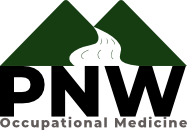Maintaining a healthy and safe work environment is crucial for any business aiming to boost productivity and employee satisfaction. Tailored occupational health services can be a game changer, addressing specific workplace needs and ensuring that employees remain healthy and engaged. In this blog, we will explore the significance of customized health services in the workplace and how they contribute to enhanced productivity.
Understanding Occupational Health Services
Occupational health services are specialized services aimed at maintaining and promoting the physical, mental, and social well-being of employees in their workplaces. These services include screening, monitoring, and preventive measures to ensure that working environments are safe and health-promoting. For instance, health screenings can detect underlying conditions that might affect an employee’s performance or safety at work. Ergonomic evaluations can prevent common workplace injuries by ensuring that workstations and practices are designed to minimize strain and stress.
Moreover, occupational health services encompass measures like stress management workshops, aimed at addressing mental health concerns that can significantly impact productivity. Mental health is equally important as physical health, influencing employees’ ability to focus, engage in their tasks, and interact positively with their colleagues. By incorporating regular mental health check-ups and providing resources for coping with stress, employers can create a more supportive work environment.
Benefits of Tailored Health Services
Customized health services cater to the unique needs of different workplaces, recognizing that each environment has specific requirements. Benefits include reduced absenteeism, lower healthcare costs, and improved employee morale and productivity. According to a report by Oregon Occupational Medicine, organizations that invest in tailored occupational health services observe a marked improvement in employee well-being and operational efficiency.
One of the notable advantages of having tailored health services is the reduction in long-term health care costs. By taking preventive measures, such as regular check-ups and health screenings, employers can identify and mitigate potential health issues before they become severe. This proactive approach not only helps in maintaining the employees’ health but also reduces the company’s expenditure on medical treatments and compensation for prolonged absenteeism. Consequently, employees are likely to feel valued and cared for, which boosts their morale and loyalty towards the company.
Additionally, tailored health services can lead to a more engaged and enthusiastic workforce. When employees are in good health, they are more likely to be productive and innovative. Tailored health initiatives, such as wellness programs, can encourage employees to adopt healthier lifestyles, leading to a more energetic and resilient team. This approach fosters a culture of well-being that benefits everyone in the organization.
Components of Tailored Occupational Health Programs
Tailored occupational health programs typically include a variety of components designed to address different health concerns. Risk assessments are essential, as they help identify potential hazards in the workplace and develop strategies to mitigate them. These assessments consider various factors, including the physical environment, the nature of the work, and the specific health needs of the employees. For example, in industries like manufacturing, where physical labor is involved, risk assessments focus on preventing injuries like sprains and strains.
Ergonomic evaluations are another crucial component, especially for office environments. These evaluations help ensure that workstations are designed to reduce physical strain, thereby preventing musculoskeletal disorders. In addition to physical health, tailored programs also address psychological well-being through stress management workshops and mental health resources. These initiatives provide employees with tools and techniques to manage stress effectively, leading to a more balanced and productive work life.
Wellness initiatives are also a vital part of tailored occupational health programs. These initiatives can include anything from yoga classes and fitness challenges to nutrition counseling and smoking cessation programs. By promoting healthy lifestyles, these programs not only improve physical health but also enhance mental well-being. Tailored programs are flexible and can be adjusted to meet the changing needs of the workforce, ensuring that they remain relevant and effective.
Case Studies: Success Stories with Tailored Health Services
Several companies have seen significant improvements in productivity and employee health after implementing tailored health services. For example, a manufacturing firm reported a 30% reduction in workplace injuries by integrating comprehensive safety training and ergonomic evaluations into their health program. This proactive approach not only minimized the occurrence of injuries but also enhanced employees’ confidence in their workplace safety.
In another instance, an IT company faced high levels of stress-related absenteeism. By introducing stress management workshops and mental health resources, they saw a considerable drop in absenteeism, which translated into higher productivity and employee satisfaction. The company’s tailored health services addressed the root cause of the stress, providing employees with coping mechanisms and a supportive work environment. This case study highlights the importance of addressing mental health as part of a holistic occupational health program.
Additionally, a retail chain that offered on-site wellness initiatives such as fitness classes and nutritional guidance experienced a significant boost in employee morale. The employees felt more energetic and engaged, which led to an increase in customer satisfaction and sales. These success stories illustrate how tailored health services can lead to numerous benefits, including enhanced productivity, better employee retention, and improved overall business performance.
Implementing Tailored Occupational Health Services in Your Workplace
The first step in implementing tailored occupational health services is to conduct a thorough assessment of your workplace to identify specific health and safety needs. This involves consultations with occupational health professionals who can help design a program that addresses these needs effectively. Regular reviews and updates ensure that the program remains relevant and effective, adapting to any changes in the work environment or workforce demographics.
Another critical aspect is to engage employees in the process. Encourage their input and feedback to ensure that the health services provided are aligned with their needs and preferences. This collaborative approach not only ensures the effectiveness of the program but also fosters a sense of ownership and commitment among the employees. Training and educating employees about the importance of occupational health services can further enhance their engagement and participation.
It is also essential to integrate these health services seamlessly into the existing workplace culture and operations. Make use of available resources, such as external occupational health experts, to provide specialized care and advice. Establish clear communication channels to keep all stakeholders informed about the program’s goals, procedures, and benefits. By maintaining transparency and open dialogue, you can ensure that everyone is on board and committed to making the program a success.
The Importance of Investing in Tailored Occupational Health Services
In conclusion, tailored occupational health services are not just a luxury but a necessity for any workplace striving for enhanced productivity and employee well-being. By addressing specific needs and mitigating potential health risks, these services create a safer and more efficient work environment. Investing in tailored occupational health services is an investment in the overall success and sustainability of your business.


